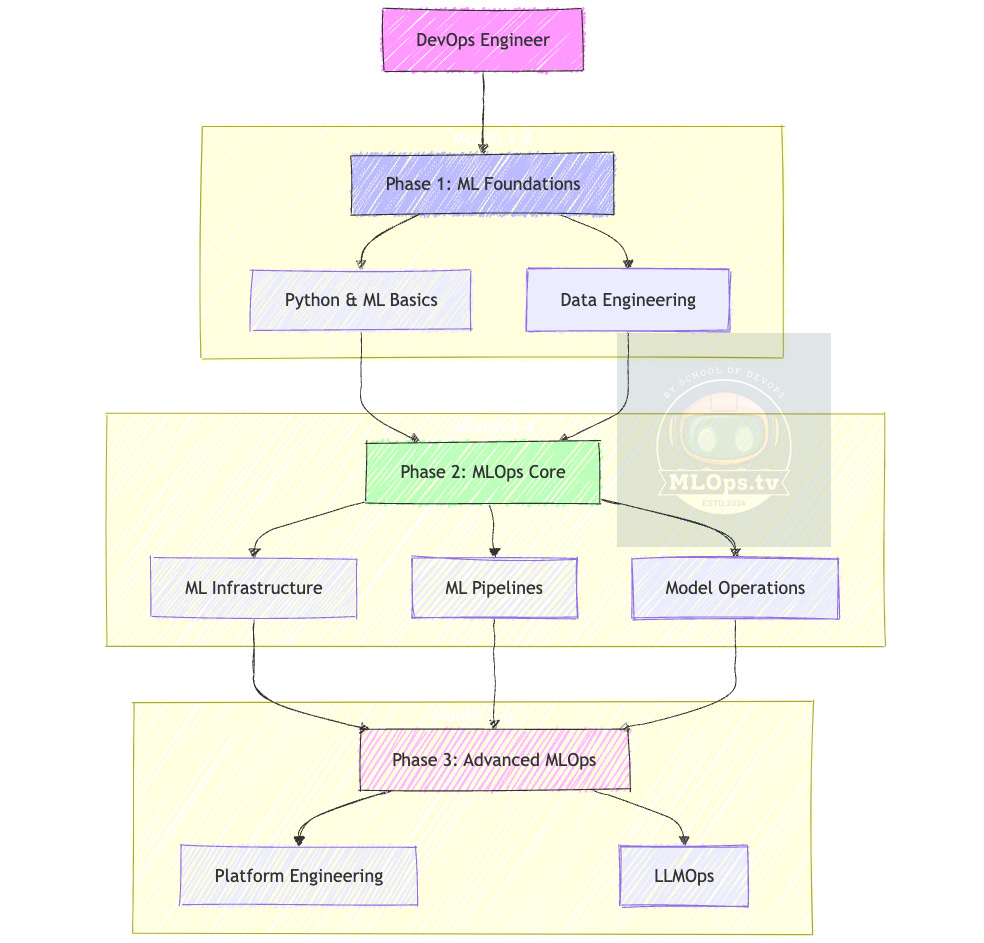Roadmap
Simplified MLOps Learning Checklist for DevOps Engineers
Phase 1: ML Foundations (Month 1-2)
Python & ML Basics
☐ Python data stack (NumPy, Pandas)
☐ Basic ML concepts
☐ Jupyter Notebooks
☐ One ML framework (TensorFlow/PyTorch)
Data Engineering
☐ Data versioning (DVC)
☐ Basic data pipelines
☐ Data validation
Phase 2: MLOps Core (Month 3-4)
ML Infrastructure
☐ Docker for ML workloads
☐ Kubernetes for ML (basic)
☐ GPU infrastructure
☐ Infrastructure as Code (Terraform)
ML Pipelines
☐ Experiment tracking (MLflow)
☐ Pipeline orchestration (Kubeflow/Airflow)
☐ CI/CD for ML
☐ Model registry
Model Operations
☐ Model serving (KServe/TF Serving)
☐ Model monitoring
☐ A/B testing
☐ Model versioning
Phase 3: Advanced MLOps (Month 5-6)
Platform Engineering
☐ Kubeflow operations
☐ Feature stores
☐ Multi-model deployment
☐ Cost optimization
LLMOps
☐ Vector databases (Pinecone/Weaviate)
☐ LLM frameworks (LangChain)
☐ RAG patterns
☐ LLM serving optimization
Essential Projects to Build
End-to-end ML pipeline with automated training
Production model deployment with monitoring
RAG-based application deployment
Multi-model serving platform
Focus Tools per Phase
Phase 1: Python, DVC, Basic ML
Phase 2: Docker, Kubernetes, MLflow, KServe
Phase 3: Kubeflow, Vector DBs, LangChain
Learning Tips
Build projects as you learn each component
Focus on one tool per category initially
Start with simpler models, then move to complex ones
Always implement monitoring from the start
Practice infrastructure automation for each project
]

